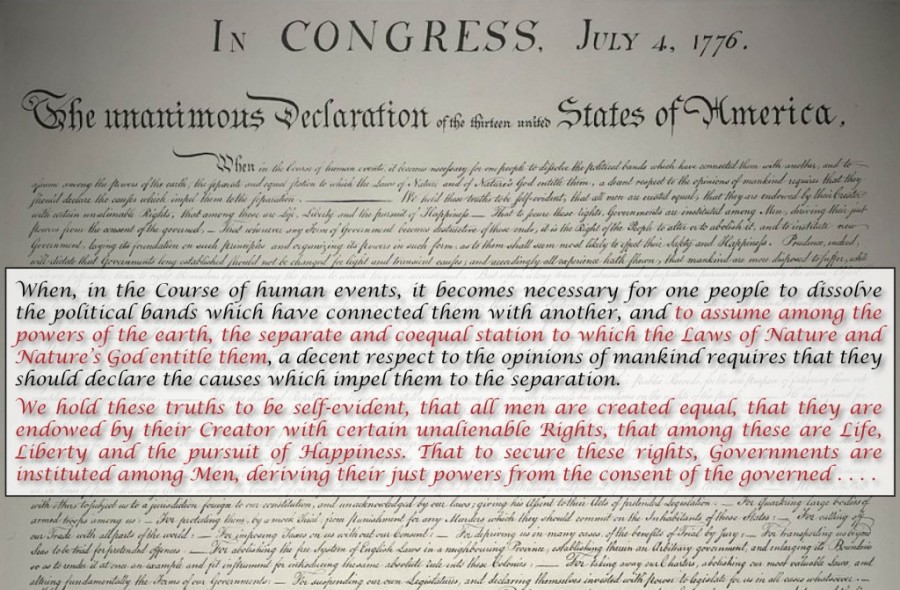“When in the Course of human events, it becomes necessary for one people to dissolve the political bands which have connected them with another, and to assume among the powers of the earth, the separate and equal station to which the Laws of Nature and of Nature’s God entitle them, a decent respect to the opinions of mankind requires that they should declare the causes which impel them to the separation.”
“Natural law” means moral law – in particular, the fundamental moral principles that are built into the design of human nature and lie at the roots of conscience. Natural law thinking is the spine of the Western tradition of jurisprudence. Historically, it has provided the basis for talking about all of the ‘hot button’ issues in past and present culture wars. If you wanted to talk about war, slavery, political liberty, or relations between men and women, you talked about natural law. The distinctive mark of natural law thinking is that it begins from what the mind can know about these things by reasoning alone, rather than by the authority of revelation. This is in no way to deny revelation, for although the earliest natural law thinkers were pagans, the most influential natural law thinkers have been Christians who held that reason and revelation work together.
The founders of the American republic believed in the natural law — in universal and “self-evident” principles of justice and morality which the Declaration of Independence called “the laws of Nature and of Nature’s God.” For generations afterward, most Americans took the reality of natural law for granted. The Declaration of Independence had appealed to it to justify independence; Abraham Lincoln appealed to it to criticize slavery; Martin Luther King appealed to it to criticize racial discrimination. You would hardly guess any of this from the present day, because belief in natural law has come to be viewed as “politically incorrect.” J. Budziszewski.


